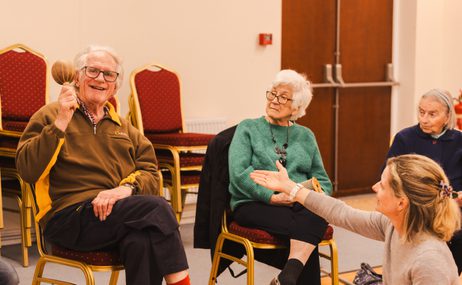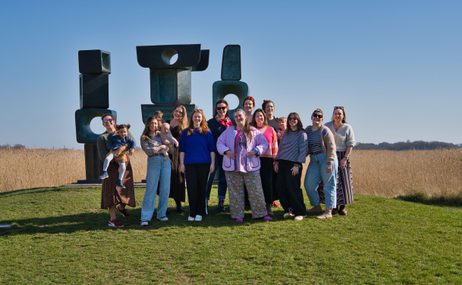Music has power to improve quality of life and wellbeing in later life. It encourages connection, reduces isolation and loneliness, improves mood, memory and sleep quality, reduces feelings of stress and anxiety, and helps lower the impact of conditions like depression and dementia. Whatever way we decide to engage with it, the power of music cannot be underestimated.
Our work with older people aims to combat emotional and geographical isolation as well as helping manage the symptoms of conditions such as Parkinson’s and dementia. At its core is our Participate’ programme that delivers creative activity to older adults whilst developing new ways of working, training practitioners, and sharing best practice locally and nationally. To help inform out future thinking we brought together practitioners, funders and strategic thinkers to explore music in later life.

If we imagine our own lives in older age creativity, connection and choice are often crucial elements to what it means to live a good life.
Outcomes
Our three key areas of focus in this ThinkTank were on knowledge, principles of practice and reach. There is a great deal of evidence as to the impact and efficacy of music in later life. We need to build resources on sustainable, scalable and replicable approaches, training and skills. We need to find better ways of measuring impact and demonstrating the value of music. Funders, commissioners and policy makers can benefit from not only speaking to people who are in receipt of this work, but also those who deliver it. Creative arts are often reticent to be seen in a utilitarian way, but tangible health benefits can be measured as a result of participation. Music enables connection, creativity and choice in later life. It brings benefits to participants and carers. We need to develop an infrastructure that supports broader reach so that we can all lead creative and nourishing later lives.
Download the Executive Summary

Illustrations by Jennifer Pitchers

Creative Care in Community: Britten Pears Arts’ PARTICIPATE programme evaluation
Between January and March 2025, Britten Pears Arts (BPA) partnered with Mindful Care Training and Consultancy (MCTC) to independently evaluate…
Empowering Return: Reflections on the SWAP’ra Retreat
In March 2025, SWAP’ra (Supporting Women and Parents in Opera), in partnership with Britten Pears Arts, hosted a transformative week-long retreat at…
Miyabi Duo at HMP Hollesley Bay
Over the past year, a new and exciting programme from Britten Pears Arts has demonstrated the transformative power of live performance at two prisons…
